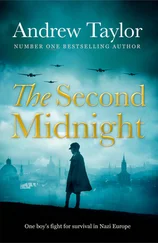1 ...6 7 8 10 11 12 ...21 ‘As you see, he has scrofula,’ Lady Quincy went on. ‘You must not be concerned – I believe there is no risk of infection. I took him to Whitehall to see the King touching the afflicted, to show him that there were others like himself.’ She glanced at the boy and added, ‘God has granted the King the ability to heal, as a token of his divinely ordained right to rule over us.’
‘How charitable,’ I said. I felt guilty for my earlier self-consciousness about my own blemishes, caused by a fire a few months before: if I compared them with this child’s neck, what had I to complain of?
In some small, cynical part of my mind, I thought that Stephen’s scrofula had provided perfect cover for our meeting when she had asked me to pass on the warning to Cat.
‘I wanted Stephen to see the ceremony of healing,’ she went on. ‘To reassure him. He is superstitious, you see, like all these savages, and he thought it might be a sort of witchcraft.’ She spoke as if the boy were not there.
‘And Mr Knight? Do you hope he will cure Stephen?’
Lady Quincy shook her head. ‘No – only the King can do that. But as Sergeant Surgeon he is qualified to issue certificates of scrofula, as well as the tickets for sufferers to attend the public healing ceremony. Besides, I wish to know more about the illness.’ She swallowed suddenly and her fingers made small, convulsive movements on her lap. ‘About its symptoms. And its causes.’
‘But my lady – why do you want me to escort you? Why is the appointment in my name? Why all this secrecy?’
‘Because I desire that my interest in scrofula should not be public knowledge, or not at present. That’s why I wore a veil when we met at the Banqueting House, and that’s why the appointment is in your name.’ Lady Quincy paused, and moistened her lips. ‘I have my reasons, and perhaps one day I shall confide in you. But, in the meantime, I know I may trust you to be discreet.’
The house was old and large, with many rooms and passages that seemed to have been acquired at random over the last three or four generations. It looked comfortable enough but everything was a little old-fashioned, a little shabby. There was a shop on the ground floor, though it was closed. Mr Knight’s cousin imported furs from Russia. He clearly prospered in his dealings but felt no need to advertise the fact to the world.
We were shown into a small parlour on the first floor. The servant offered us refreshments, which we declined. Mr Knight did not keep us waiting long. He brought with him a hint of wine on his breath, and the scent of cooking. The surgeon was a man who had lived much at court, and it showed in his stately manner. Though he was too polished to show impatience, I guessed that dinner was not far away and he did not want to prolong this interview any longer than he needed.
After we had introduced ourselves, I told Stephen to come forward and expose his neck.
‘So this is the boy,’ Mr Knight said. ‘How interesting. I believe I have never seen a blackamoor afflicted with the disease. I must make a note of it.’
He beckoned Stephen closer and examined him. His long, deft fingers were surprisingly gentle. Lady Quincy, her face veiled, leaned forward in her chair to watch.
‘Is it the King’s Evil?’ she asked.
‘Oh yes, mistress. There’s no doubt about that. And in an advanced state. The inflation is at present mainly in the neck, with the characteristic rosy colour. Tilt your head back, boy. Yes, I thought so. The hard tumours are propagating vigorously under the jaw and about the fauces …’
Knight straightened and turned towards us. ‘There will be no difficulty about providing you with a certificate stating that he has scrofula. And, in the circumstances’ – he gave a little bow, perhaps in respect of the King’s possible interest in the matter – ‘I will also write you a special ticket of admission for the next public healing ceremony. Otherwise the boy would have to present himself with his certificate at my house in Russell Street before the ticket can be issued. That can sometimes take months, because there is always such a crowd of sufferers.’
‘Thank you, sir,’ I said.
‘Tell me,’ Lady Quincy said. ‘How is the disease caused? What is its nature?’
He took a chair and leaned back, steepling his fingers. ‘These are most interesting questions. As Hippocrates observes, he who knows the nature of the disease can be at no great loss for the properest method of cure. But I regret to say we don’t fully understand scrofula, not completely. Generally it is characterized by an indolent tumour or – as in this case – several tumours.’ He prodded Stephen’s neck, and the boy recoiled. ‘Yes, the struma yields. This one – the one on the left here, under the jawbone – will probably degenerate into a stubborn ulcer within the month.’
‘And the causes, sir?’ she prompted, and again I saw the curious flutter of her fingers on her lap. I wondered at her agitation.
‘Well – let me enumerate some of them, or rather the conditions that may lead to the disease. We find it particularly in children descended from parents who also are disfigured by it. (What a pity we usually cannot examine them.) Or in those suckled by nurses who were themselves diseased. Or who have lived much in humid air.’ He poked Stephen again. ‘Africa is humid, is it not?’
The boy stared blankly at him, his eyes wide and fearful.
I guessed he didn’t understand the word. I said, ‘The gentleman means damp, Stephen. Was it damp where you lived before you were brought to England?’
He twitched his head like a nervous horse confronted by something he does not understand. Mr Knight took this as assent.
‘There you are,’ he said. ‘I’m not surprised. Another cause is undoubtedly diet – viscous, crude, farinaceous aliments, in particular, or unripe fruit. Or lack of healthful exercise. Or the possession of a frigid or phlegmatic temperament.’ He frowned. ‘The boy certainly looks phlegmatic. Is his bile inert, by the way?’
I’ve shrugged. ‘I’ve no idea.’
Knight hurried on, anxious to smooth over an awkwardness. ‘External injuries – luxations, for example, or strains – or even catarrhs and fevers may lead towards scrofula. Or drinking stagnant water. There are some physicians who hold that a mother who has looked much upon a scrofulous person may, as it were, imprint the disease on her own child.’
Lady Quincy made no comment. I said, ‘These are underlying causes, if I understand you correctly, sir. Are there factors that incite an outbreak of the disease in a person already predisposed towards it?’
‘Well, sir – here there is some debate in the profession. Most of us, I think, would agree that the proximate cause is probably the obstruction of the small vessels by a viscid, inert humour. There are some, however, who attribute it rather to a particular acidity of the blood, which causes it to coagulate and then harden.’
‘What is the best method of treatment, sir?’ Lady Quincy asked.
Mr Knight smiled condescendingly. ‘There is none of proven efficacy apart from His Majesty’s touch. By God’s mercy he has cured thousands of sufferers. Why, by my calculations, he must have stroked some thirty thousand of his subjects. No wonder the people love their King and venerate God. We are blessed indeed.’
‘Indeed,’ said Lady Quincy drily. ‘Thank you for your advice. I believe you and Mr Marwood have a little business to transact. I shall wait here while you do it.’
Mr Knight and I left her alone with Stephen. At my request, he ordered a servant to bring our hackney to the street door. He took me into a small room overlooking the street. It was furnished plainly as a counting house. There was a terrestrial globe in the corner. A map of Muscovy had been unrolled on the table, its corners held down with pebbles.
Читать дальше












